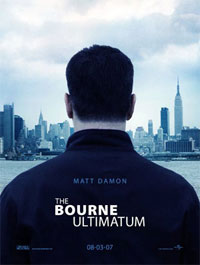
I've been deeply disturbed for some time now, and particularly over the past week by how the TV/radio/internet news agenda dictates what we prioritise, and how our relationship with the web has colonised so many of our lives. I know this not a new thought, but something about the daily reports of individual and communal suffering of the recent past has reached a tipping point for my threshold of balance.
In the ancient days of dial-up, I checked email twice a day; and always made a point of checking in with a news website. In this way, I of course managed to stay in touch with people, but I also once discovered that an acquaintance of mine had been murdered by seeing the news on a website. Nowadays I can find out that a close friend has broken up with her partner, without ever having to talk to her about it, just by getting a notification from Facebook that her 'profile' has changed. Amazing how we don't have to relate to each other any more in person, isn't it?
More recently, having wi-fi at home led to me checking for natural disaster or violent conflict before I even had a cup of coffee in the morning. Until today. I think I have become infected with an addiction to bad news. I'd like to be able to commit to stop looking at news websites as often as I currently do. I think it might save my sanity, and help me get a better grip on the proportion of good to bad news in the real world. I don't mean, of course, that bad news isn't happening, or that we should ignore it. But I do wonder if the more we think we know about it, the less we are likely to act. And at the same time, I still have a sentimental tendency to believe that it is better to light a candle than to curse (or indulge) the darkness; which is partly why I have put a photograph of my favourite place in northern Ireland at the top of this post (it's the Silent Valley in the Mourne region). I wrote the following thoughts a year or so ago, but I think I only now have begun to believe them...
Wait a few minutes for the headlines in any news broadcast, and, in spite of the nobility and supreme good looks of its presenters, you’re bound to be not too far from the suggestion that all of human life’s going to hell. All news, it seems, is bad news.
The news recently has confronted me with stories of kidnap plots, infant deaths, senior citizen robberies, figures on the religious right suggesting that their God is a petty tyrant, whose only motivation is to punish errant humans by sending them hurricanes or strokes, students running riot in Belfast’s Holy Land, and a 76 year old man who needed two lethal injections to execute him. The world presented in this way is a fearful place, a society gone crazy, a circus with lions but not clowns.
It’s not the kind of world I’d like to live in.
And, of course, it’s not the kind of world that I do live in.
Recent media reports could just as easily have reflected any of these stories, all of which took place yesterday.
A man in India wiped the tears of a grieving woman.
Some people in New York City saw a film that will change their lives forever.
A business executive in London chose not to participate in work that exploits other people.
A family in Derry decided that they would recycle their newspapers from now on, and contribute to ensuring that there may actually be a planet to sustain human life in the future.
A couple in Edinburgh switched off their television, and decided they would never switch it on again if they could spend time eating and drinking with other human beings instead.
Music was composed in Galway that will bring peace to the wounded hearts of people.
Stunning light shone on the shore water of Strangford Lough.
Legal cases were continuing to challenge the use of the death penalty in the United States.
An elderly woman in east Belfast tended to the chrysanthymums in her garden.
Students in Belfast’s Holy Land invited other students to eat pizza, chill out, and form friendships, some of which will last for the rest of their lives.
The legacy of Martin Luther King was marked by a teacher in Berlin who seeks to transmit his profound non-violence to a new generation.
People all over the world fell in love and provided the ground from which new human life would be created.
A few people in an undisclosed location learned to live without fear.
There was a rhythm to life that made us sane, and some of us decided to stop allowing the agenda of bad news to dictate the pace of our lives. Instead, we acknowledged to ourselves that God is present in the world, in every smile, in every wound, in every house, in every street, in every atom. Look out your window. There is no monster on the corner. The creation is good, the world is beautiful, and so are you.




